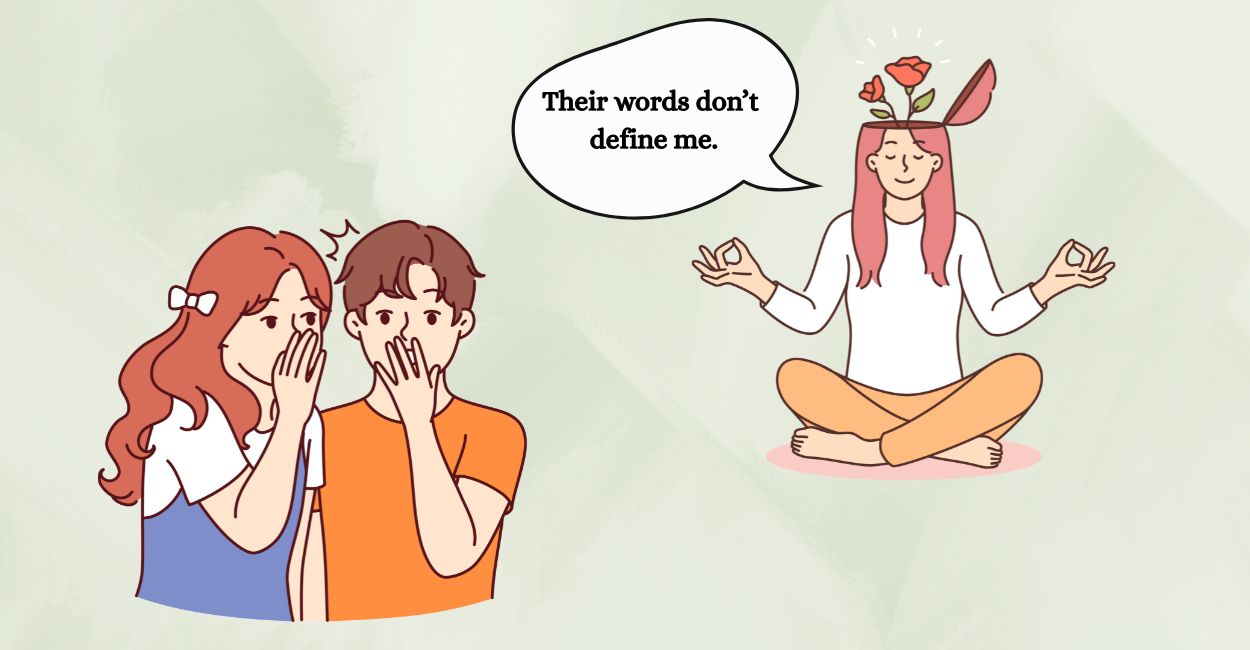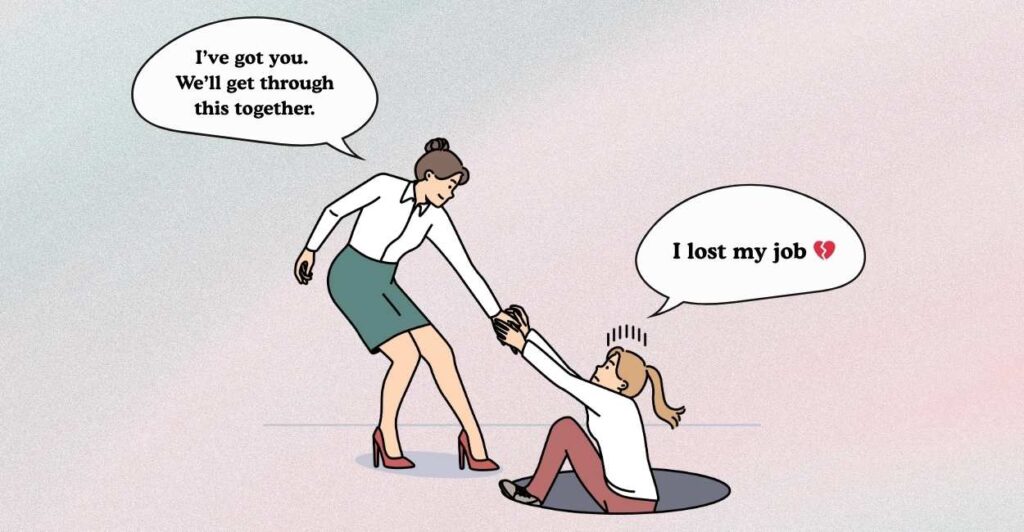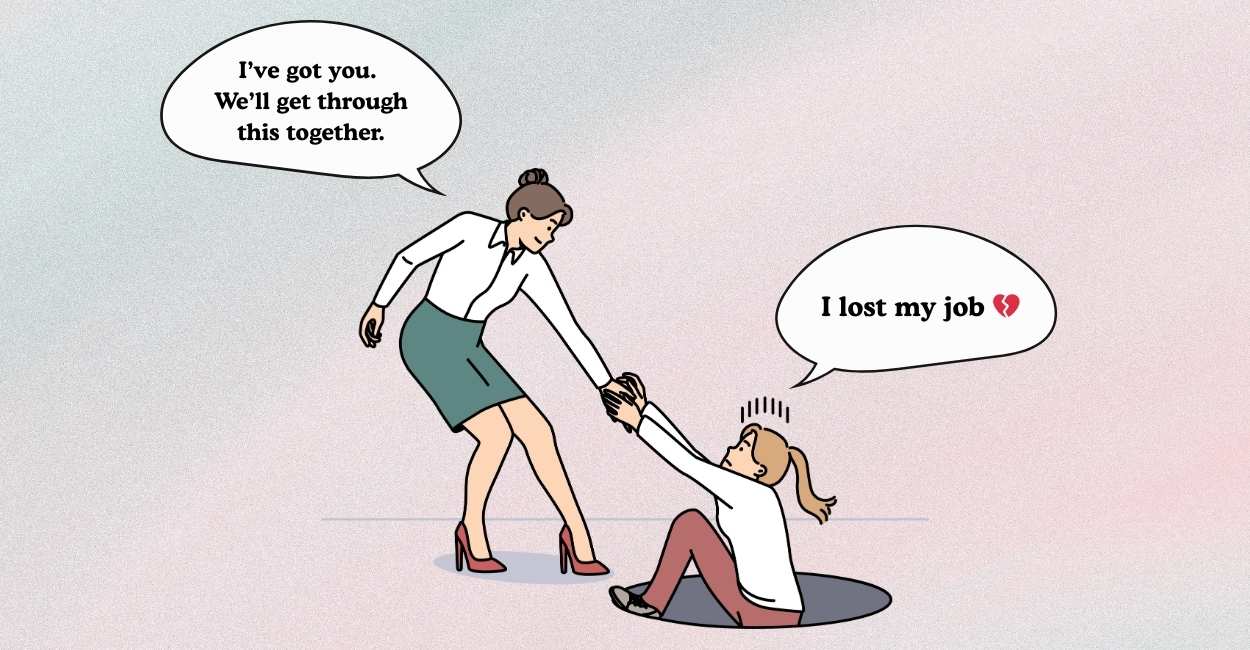Surrounded by Gossipmongers – Here’s How to Deal with Friends Who Talk Behind Your Back

It doesn’t matter how young or old you are; every person still struggles with a question: how to deal with friends who talk behind your back. The sting of hearing that someone you trust has spoken badly about you behind your back can leave an everlasting emotional scar.
It doesn’t matter whether the gossip is small, malicious, or obnoxious; betrayal by a friend is uniquely painful. Therefore, with this article. Let’s explore the steps you can take to manage the situation with wisdom and maturity, while protecting your emotional well-being.
How To Deal with Friends Who Talk Behind Your Back – A Must-have Guide!
Before you can effectively address the issue, it’s essential to acknowledge the emotional impact of discovering that friends have talked behind your back. So, take a moment to breathe and allow yourself to process these emotions. Remember, your feelings are justified.
Step 1: Confirm the facts before confrontation
The first instinct that comes to any person’s mind is to confront the backstabber directly. However, are you sure – they have really spoken ill of you? Whoever has passed the information to you, is that person trustworthy?
You must understand that information can sometimes become distorted as it passes from person to person. So, before the whole confrontation, ask yourself –
- Who told you about the situation?
- How trustworthy is the source?
- Is there a possibility of misunderstanding or exaggeration?
If you decide to investigate further, approach mutual friends with discretion. The one who passed the information, take them in confidence, ask neutral questions to clarify what was said and by whom. Avoid making accusations without evidence, as this can escalate conflict unnecessarily.
Step 2: Reflect on the friendship
One of the key steps when it comes to how to deal with friends who talk behind your back is to reflect on the friendship. Start by gathering all the facts, and once that’s done, then reflect on your friendship.
Think – are they generally supportive and trustworthy, or have they always been a red flag, which you tend to ignore or misjudge? You must understand that self-reflection is key. Sometimes, friends make mistakes out of insecurity, jealousy, or even an attempt at bitter humor that has terribly gone wrong.
However, understanding the root cause behind such behavior motivation is crucial, and of course, not to excuse such behavior. But it’s just that it can help you approach the situation with empathy rather than only anger.
Step 3: Decide whether to address the issue
How to deal with friends who talk behind your back depends on your goals and the severity of the situation. You have several options:
- You can directly confront them, address the issue privately and calmly.
- If no confrontation, you can let things go. Most importantly, if the gossip was minor and out of character, you may choose to forgive and move on.
- Lastly, you can change the nature of your friendship by setting friendship boundaries or distancing yourself from them if this is a recurring issue.
However, there is no single “right” answer because everything depends on the situation and the way you wish to tackle things. In the end, trust your instincts and do what feels healthiest for you.
Step 4: If you are up for addressing the issue, then prep for the conversation
Now that you have decided to address the issues, preparation is vital. Plan what you want to say and how you want to say it. However, the most important aspect is focusing on expressing your feelings and experiences rather than making accusations.
Here are some tips:
- Use “I” statements, such as “I felt bad, and I was immensely hurt when I heard you were talking about me.”
- While addressing, be very specific about what you heard without naming third-party sources unless necessary. Don’t wander off and go off-topic. Stick to things you want to say.
- Be a good listener too. Hear them out and know their perspective. However, if you think they are dismissing your feelings, don’t let them do that!
- Keep the conversation private and respectful to avoid further drama.
Approaching the conversation calmly increases the likelihood of a productive outcome. The goal is not to “win” the argument, but to seek understanding and resolution.
Step 5: Listen to their side
When there is a true friendship, and if you believe in it, then give your friend a chance to explain. Maybe there was a misunderstanding, or perhaps they’re genuinely remorseful.
So, be a good listener and listen actively, without interrupting. While they are talking, please pay attention to both their words and their body language.
Amidst this, if your friend admits to the wrongful behavior and apologizes sincerely, think before you act. Think, do you really want to let go, forgive, and rebuild trust and revive the friendship?
On the flip side, if they deny everything or respond defensively, you’ll need to decide whether you want someone like them in your life.
Step 6: Do you want to rebuild trust or move on
Before you decide, understand that if you choose to continue the friendship, rebuilding trust will take time. It’s not going to happen overnight.
Gradually, you will have to be clear about your boundaries and expectations moving forward. It’s okay to be cautious and to take things slow.
On the other hand, if the betrayal is severe or repeated, you may have to take the harsh but honest decision – ending the friendship. However, bitter as it may sound, it is the healthiest choice.
Yes, undoubtedly, it’s going to be an utterly painful process, but it is also an opportunity to prioritize your own well-being and open yourself up to new, healthier relationships.
How to Protect Yourself from Future Betrayal?
How to deal with friends who talk behind your back also means learning how to protect yourself from similar situations in the future. So, here are some strategies:
- Choose your friends wisely. Just because someone talks sweetly to your face doesn’t mean they are good. Instead of having such fake and toxic people around, surround yourself with people who demonstrate loyalty, kindness, and respect.
- Set boundaries right from the start. Don’t start opening up about your personal life right away. Share it only with those whom you trust deeply.
- If you don’t like people who talk behind your back, then you shouldn’t be doing the same. Yes, avoid gossip and steer clear of conversations that involve speaking ill of others. This sets a standard and reduces the likelihood that people will gossip about you.
- Trust your instincts no matter what! If something feels off in a friendship, pay attention to the warning signs and take cautious steps. Your well-being should be your top-notch priority.
- Focus on self-care because betrayal can take a significant toll on your mental and emotional health. Make self-care a priority during this difficult time.
- Always stay in touch with your loved ones. Talk to a trusted friend or family member about your feelings.
- Start undertaking activities that give you immense joy. If not outdoors, consider journaling to process your emotions.
- If nothing works, it’s best to seek professional help.
What If It Happens at Work or School?
Friendships often overlap with professional or academic environments, which can further complicate the situation. But here are some tips to sail through the situation.
- Maintain professionalism with your coworkers. Don’t let personal drama interfere with your responsibilities.
- Be careful with workplace gossip as it can impact your reputation and career advancement.
- Document incidents, if necessary, especially if the gossip crosses into harassment or bullying.
- Seek support from supervisors or counselors if needed.
Over to you…
Knowing how to deal with friends who talk behind your back is a crucial life skill. Although the experience of betrayal is never easy, it doesn’t have to define you or your future relationships.
By approaching the situation thoughtfully, setting clear boundaries, and caring for your own well-being, you can move forward with confidence and strength.
At the end of the day, remember, true friends will stand by you, not speak against you. If you find such supportive friends, don’t let them go ever!












